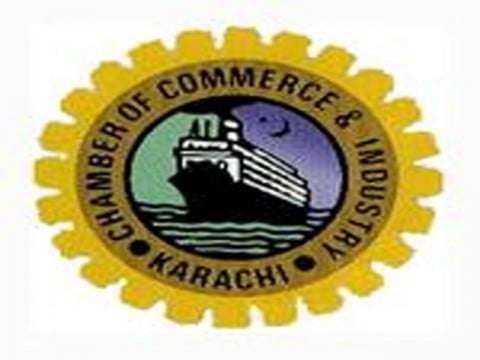Karachi Chamber of Commerce and Industry Rejects Reinstatement of Affidavit Requirement for Sales Tax Returns
|
Getting your Trinity Audio player ready...
|
The Karachi Chamber of Commerce and Industry (KCCI) President, Muhammad Jawed Bilwani, has strongly condemned the reinstatement of the affidavit requirement for filing sales tax returns. The KCCI has demanded that the authorities immediately suspend this condition until effective and viable alternative measures are implemented.
Background of the Affidavit Condition
Affidavit Requirement for Sales Tax Returns
The Federal Board of Revenue (FBR) previously imposed a condition requiring businesses to submit an affidavit alongside their sales tax returns, which was widely criticized by the business community. This affidavit essentially required taxpayers to provide a declaration that the details in their sales tax returns were accurate, including their claims of tax credits and payments made to suppliers.
This provision was introduced in an attempt to curb the problem of falsified sales tax returns and fraudulent invoices that have been rampant in Pakistan’s taxation system. However, it placed an additional burden on businesses, especially small and medium enterprises (SMEs), which were already struggling with compliance issues and mounting financial pressures.
Suspension of the Affidavit Requirement for September 2024
In response to the concerns raised by the KCCI and other stakeholders, the FBR had withdrawn the affidavit requirement for the tax period of September 2024. This move was hailed as a positive step by the business community, and it was publicly notified through a press statement. The FBR assured taxpayers that the affidavit condition would not be required for sales tax returns for September 2024, which were due in October 2024.
Furthermore, the FBR stated that it would actively solicit proposals from business stakeholders until October 31 to address the issue of falsified sales tax returns. The goal was to identify alternative measures that could tackle fraud without burdening the business community further. The FBR had also indicated that it would consider revising or modifying the affidavit requirement based on these consultations.
Reinstatement of the Affidavit Requirement
Despite the FBR’s assurances, the affidavit requirement was recently reinstated, prompting strong reactions from business groups like the KCCI. Muhammad Jawed Bilwani, President of the KCCI, has publicly denounced this decision, emphasizing the lack of consultation with stakeholders and the absence of viable alternative solutions.
He pointed out that the FBR had not held any discussions with the business community or explored alternative measures to address fraudulent tax practices. Bilwani noted that the reintroduction of the affidavit requirement would only add unnecessary complications for businesses, particularly those already grappling with financial instability and operational challenges.
Challenges Faced by the Business Community
Increased Burden on Taxpayers
Bilwani stressed that the business community was already under immense pressure, with inflation, rising operational costs, and an unpredictable economic environment. The additional requirement of filing an affidavit alongside sales tax returns would only exacerbate these challenges. This move, according to him, is likely to result in unnecessary hassle for businesses and could create a climate of fear and intimidation, further deterring businesses from engaging with the tax system.
Difficulty in Providing Guarantees for Tax Credits
One of the major concerns raised by the KCCI is the difficulty businesses face in providing guarantees or assurances for tax credits that arise from fraudulent or fictitious invoices linked to suppliers and other tiers in the supply chain. Since businesses cannot control the activities of their suppliers or the authenticity of invoices provided by third parties, the affidavit condition places an undue burden on them.
Taxpayers are often unable to verify whether the invoices provided by their suppliers are genuine, especially when they deal with multiple tiers of suppliers in the supply chain. This makes it virtually impossible for businesses to provide assurances about the accuracy of these invoices, leading to potential penalties or audits for discrepancies that are beyond their control.
Lack of Consultations with Stakeholders
Bilwani also criticized the fact that no consultations had taken place between the FBR and the business community before reinstating the affidavit requirement. He argued that a lack of meaningful dialogue between policymakers and industry representatives was contributing to the persistence of such ill-conceived regulations. The KCCI president emphasized that a more collaborative approach, where businesses are actively involved in discussions, could result in more practical and effective solutions to the issues of tax fraud and falsified returns.
Alternative Solutions to Combat Fraud
Implementing Technology and Data Analytics
Instead of relying on manual affidavits, industry experts suggest that the FBR should invest in modern technology and data analytics to combat fraudulent sales tax returns. By automating the verification process, the FBR could more effectively identify discrepancies in tax returns without placing additional burdens on businesses. This would also minimize the chances of human error and reduce the administrative workload for both taxpayers and tax authorities.
Stronger Enforcement of Existing Laws
Another potential solution to address tax fraud is to strengthen the enforcement of existing tax laws. Rather than imposing additional requirements on businesses, the FBR should focus on cracking down on fraudulent practices within the supply chain. This includes taking action against suppliers who issue fake invoices and tightening regulations around invoicing practices. If suppliers face stricter penalties for issuing fraudulent invoices, businesses will have less incentive to engage in tax fraud.
Public Awareness Campaigns
The FBR could also consider launching public awareness campaigns to educate businesses about the risks of engaging in fraudulent tax practices. By raising awareness of the legal consequences of submitting false invoices or returns, the FBR could encourage voluntary compliance and reduce the need for stringent regulatory measures.
Call for Immediate Suspension of Affidavit Requirement
The KCCI has called on the FBR to immediately suspend the reinstatement of the affidavit requirement. The chamber urges the authorities to reconsider the decision and explore alternative measures that can effectively address the issue of fraudulent tax returns without burdening businesses further.
Muhammad Jawed Bilwani has stated that the KCCI will continue to advocate for the suspension of the affidavit requirement until a more practical solution is devised. The business community, he added, is willing to collaborate with the FBR to find workable alternatives that can achieve the objectives of curbing fraud while fostering a more conducive environment for businesses to thrive.
Conclusion
The reinstatement of the affidavit requirement for sales tax returns has sparked controversy and concern within Pakistan’s business community. While the FBR’s intentions to curb tax fraud are valid, the implementation of such stringent measures without proper consultation with stakeholders is causing unnecessary hardships for businesses. The KCCI has called for an immediate suspension of this requirement until a more effective and balanced solution is found. Moving forward, a collaborative approach involving all stakeholders, coupled with the use of technology and stronger enforcement, will be essential in addressing the issue of fraudulent sales tax returns while ensuring the growth and sustainability of the business community.
FAQs
- What is the affidavit requirement for sales tax returns? The affidavit requirement mandates that businesses submit a declaration along with their sales tax returns, ensuring that the details in the returns are accurate and truthful.
- Why was the affidavit requirement reinstated? The FBR reinstated the affidavit requirement as part of its ongoing efforts to combat fraudulent sales tax returns and tax evasion.
- How does the affidavit requirement affect businesses? The affidavit requirement places an additional burden on businesses, particularly small and medium enterprises, as it is difficult for them to guarantee the authenticity of invoices provided by suppliers.
- What alternatives to the affidavit requirement has the KCCI suggested? The KCCI has proposed the use of technology and data analytics to verify tax returns, along with stronger enforcement of existing tax laws and public awareness campaigns.
- What action has the KCCI demanded from the FBR? The KCCI has called for the immediate suspension of the affidavit requirement until alternative measures are implemented, and has urged for consultations with business stakeholders to find a viable solution.
ALSO READ:
https://skipper.pk/2024/11/10/uncertainty-plagues-pakistans-ep-sector-amid-policy-delays/




